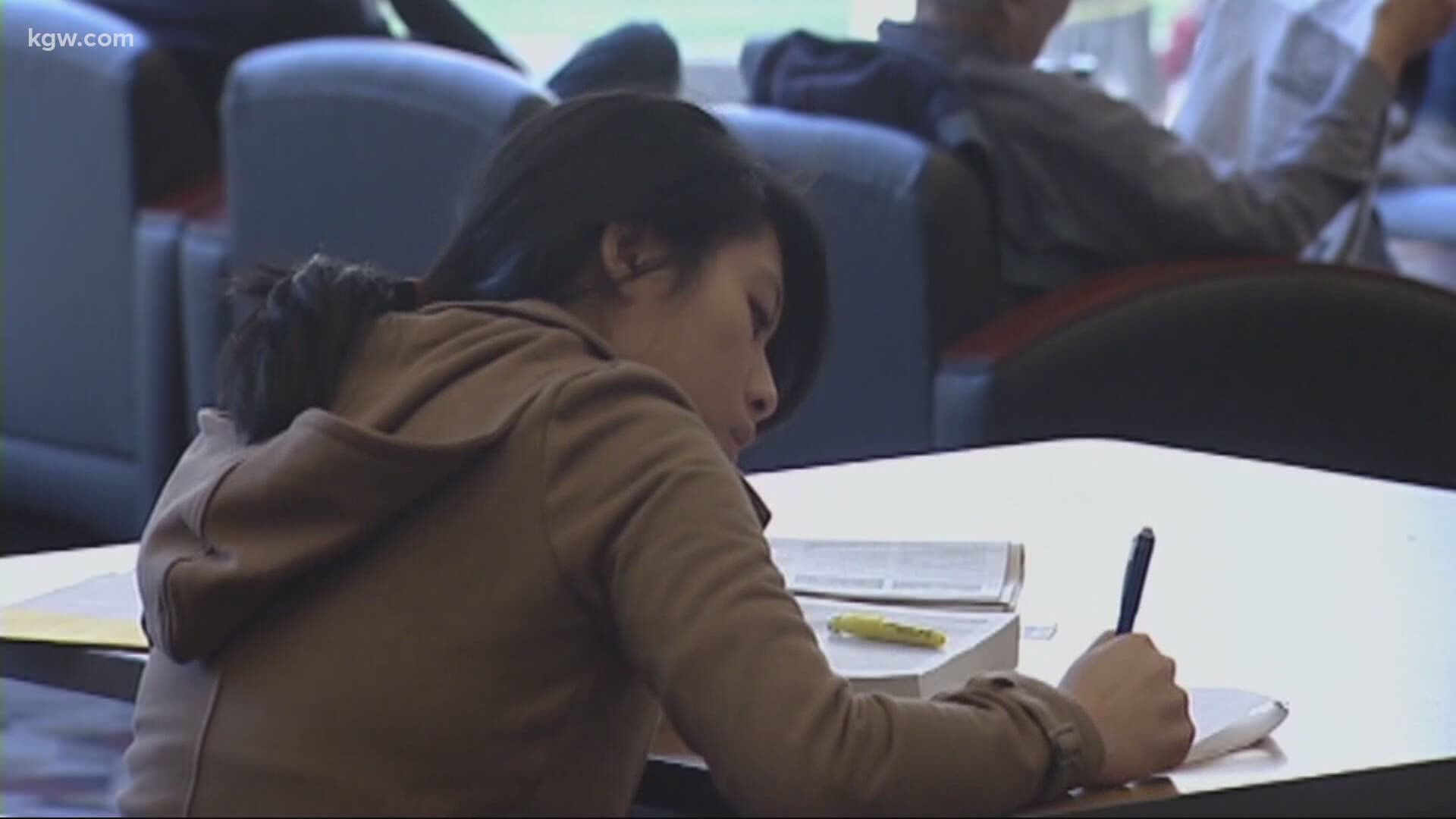PORTLAND, Ore. — The pandemic is having a big impact on the college admissions process.
Parents and students are wondering what to expect as they try to tour campuses, apply and make a decision.
Usually, at this point in the year, a lot of incoming high school seniors would be thinking about which colleges to apply to, test scores and what they have to do to make sure their application stands out.
But COVID-19 has thrown a wrench into the "normal" college application process.
Julia Surtshin is the founder of College Ahead. She said since 1990 she’s been an independent college counselor and she’s a certified educational planner.
She said some things have changed when it comes to applying to college in the time of COVID.
What's changed: Standardized testing requirements
"People are really freaking out about what’s happening with standardized tests, the ACT and the SAT," said Surtshin. "Test dates and test sites are getting closed all the time."
But on the positive side, she said a lot of colleges, even some that are highly competitive, have decided to go test-optional.
In the Pacific Northwest, a number of universities have already gone test-optional for freshman starting in the fall 2021. That includes the seven public universities in Oregon.
"I think students and parents are somewhat reluctant to accept that at face value," Surtshin said.
But she said if students can’t or parents don’t want their kids to take standardized, it may be a good option to forgo them if the institution a student wants to attend doesn’t require test scores.
"That can really take off some pressure," said Surtshin.
Late last week, the National Association for College Admission Counseling (NACAC) said, "Nearly 400 college and university members of the National Association for College Admission Counseling (NACAC) have signed on to the association’s statement affirming that students will not be penalized for the absence of a standardized test score for admission in Fall 2021."
In addition, NACAC also published a list of those colleges and universities that affirmed the statement.
Surtshin said with many colleges and universities going test-optional, personal statements and a student’s extracurricular activities may become even more important elements in a student’s college application.
She also said that some institutions have added an optional question about the student’s experience during the COVID-19 pandemic. Surtshin said not all students should feel the need to respond to the prompt.
"If you just had the normal experience that your school went online and you don’t have anything in particular to say, I wouldn’t be compelled to answer that question," Surtshin said.
How will homeschooling affect a student's college prospects?
Many parents who are thinking about homeschooling are also wondering if that decision might affect their child’s college prospects. Surtshin said she doesn’t think homeschooling will be an issue.
"The colleges’ attitudes about homeschooled students has really changed dramatically I would say in the last 10 years," said Surtshin. "They’re much more favorable. In fact a lot of colleges have parts of their admissions web page devoted to dealing with homeschoolers and their questions."
Surtshin said homeschooled students may actually be at more of an advantage because they’re more used to self-directed, online learning.
What remains the same in the college application process
But despite all the changes, she said one fundamental thing remains the same.
"The whole issue of fit, how well a college or a university really can provide the experiences that a student needs to accomplish his or her goals, that’s still the key factor."
Surtshin said another big thing to remember is the importance for both parents and student to ask questions.
For instance, how comfortable is the student with going 3,000 miles away right now during a pandemic?
How is the college dealing with students? What statements are they making? The answers could tell you a lot about the institution and its values.
Parents could also get in touch with their child’s high school and make sure all the information that’s getting sent with transcripts to colleges are up to date.
Surtshin also said it would be a good idea for students to stay in touch with their high school counselors because recommendations and statements from counselors will matter.
But one thing is certain, once students make it to the college or university of their choice, and if they’re on campus, the on-campus experience won’t be what it was even a year ago.

